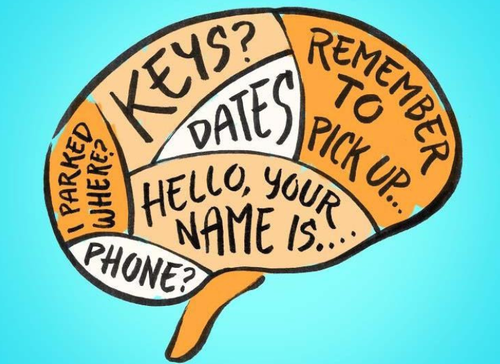Memory is the ability of the mind to store and recall past sensations, thoughts and knowledge. Memory plays a key role in helping us plan for future events.
Changes in memory can be caused by several factors such as age, chronic illness, disuse, anxiety, medications, alcohol, sensory problems, poor diet, depression and grief.
There are strategies that can be used to reduce the impact of memory loss on daily activities and the stress and anxiety this can cause. These can include:
1. Using assistive devices that help to substitute for memory, such as:
- Webster packs for medication
- Diary/day books/wall hanging calendar
- Electronic reminder devices, e.g. medication alarm
- Post-its
- Watches with multiple alarms
- Clocks with date displays
2. Learning strategies, such as:
- Writing memos to self
- Leaving post-it notes around the home
- Making to-do lists
- Placing objects together at the point needed ahead of time
3. Developing habits, for example:
- Carry out frequent tasks at the same time each day
4. Carrying a notebook or tape recorder with you to record things that you need to remember wherever you are.
5. Keeping a notepad and pen next to the phone to write down messages straight away.
6. Concentrating on one task – avoid doing two things simultaneously and minimise external distractions, e.g. turning.
- Doing important activities when you are not tired, as stress and fatigue can impact on your concentration and memory
8. Pre-planning events – use diaries, calendars, timetables, checklists or noticeboards to trigger things that need to be remembered or done.
- Cross off the previous day on the calendar first thing in the morning
- Prepare things the night before
- Tick things off as they are completed
- Use an alarm to move onto the next thing
9. Always keep items in the same place in the kitchen, laundry, bathroom and bedroom:
- Group like items together so that they are easier to find, e.g. house keys and car keys
together - Use labels to remind yourself where items are kept
10. Organising information so that it is easier to remember – cue or prompt only when absolutely necessary.
11. Teach yourself or family member to repeat information out loud as you will remember it more easily.
12. Teach yourself or family member to ask for information to be repeated, clarified or given more slowly.
13. Capitalise on strengths- Is your visual memory better than verbal memory? If so use pictures to identify objects used often.

